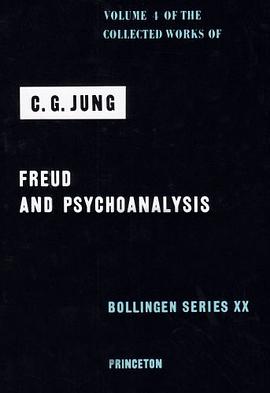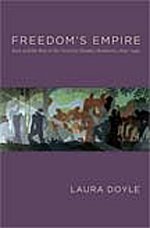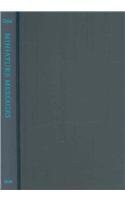

Psychological Types is the title of the sixth volume in the Princeton / Bollingen edition of the Collected Works of Carl Jung.[1] The original German language edition, "Psychologische Typen", was first published by Rascher Verlag, Zurich in 1921.[2] In the book Jung categorized people into primary types of psychological function.
Jung proposed four main functions of consciousness:
Two perceiving functions: Sensation and Intuition
Two judging functions: Thinking and Feeling
The functions are modified by two main attitude types: extraversion and introversion. Jung theorized that the dominant function characterizes consciousness, while its opposite is repressed and characterizes unconscious behavior.
The eight psychological types are as follows:
Extraverted sensation
Introverted sensation
Extraverted intuition
Introverted intuition
Extraverted thinking
Introverted thinking
Extraverted feeling
Introverted feeling
In Psychological Types, Jung describes in detail the effects of tensions between the complexes associated with the dominant and inferior differentiating functions in highly and even extremely one-sided types.
Contents
1 Historical context
2 See also
3 Notes
4 References
[edit]Historical context
Jung's interest in typology grew from his desire to reconcile the theories of Sigmund Freud and Alfred Adler, and to define how his own perspective differed from theirs. Jung wrote, "In attempting to answer this question, I came across the problem of types; for it is one's psychological type which from the outset determines and limits a person's judgment." (Jung, [1961] 1989:207) He concluded that Freud's theory was extraverted and Adler's introverted. (Jung, [1921] 1971: par. 91) Jung became convinced that acrimony between the Adlerian and Freudian camps was due to this unrecognized existence of different fundamental psychological attitudes, which led Jung "to conceive the two controversial theories of neurosis as manifestations of a type-antagonism." (Jung, 1966: par. 64)
The characteristic animosity between the adherents of the two standpoints arises from the fact that either standpoint necessarily involves a devaluation and disparagement of the other. So long as the radical difference between [Adler's] ego-psychology and [Freud's] psychology of instinct is not recognized, either side must naturally hold its respective theory to be universally valid (Jung, [1921] 1971: par. 88).
Due to the multifarious nature of fantasy, the fantasies of both Adlerian and Freudian patients contained ample empirical evidence to reinforce the steadfast belief of each side in their respective theories.
The scientific tendency in both is to reduce everything to their own principle, from which their deductions in turn proceed. In the case of fantasies this operation is particularly easy to accomplish because ... they ... express purely instinctive as well as pure ego-tendencies. Anyone who adopts the standpoint of instinct will have no difficulty in discovering in them the "wish-fulfillment," the "infantile wish," the "repressed sexuality." And the man who adopts the standpoint of the ego can just as easily discover those elementary aims concerned with the security and differentiation of the ego, since fantasies are mediating products between the ego and the instincts. Accordingly they contain elements of both sides. Interpretation from either side is always somewhat forced and arbitrary, because one side is always suppressed (Jung, [1921] 1971: par. 89).
Each side can demonstrate the truth embodied in its theory. However, it is only partial truth and not generally valid because it excludes the principle and truth embodied in the other.
Nevertheless, a demonstrable truth does on the whole emerge; but it is only a partial truth that can lay no claim to general validity. Its validity extends only so far as the range of its principle. But in the domain of the other principle it is invalid (Jung, [1921] 1971: par. 89).
Jung still used Adler's and Freud's theories, but in restricted circumstances.
This [type-antagonism] discovery brought with it the need to rise above the opposition and to create a theory which would do justice not merely to one or the other side, but to both equally. For this purpose a critique of both the aforementioned theories is essential. Both are painfully inclined to reduce high-flown ideals, heroic attitudes, nobility of feeling, deep convictions, to some banal reality, if applied to such things as these. On no account should they be so applied ... . In the hand of a good doctor, of one who really knows the human soul ... both theories, when applied to the really sick part of a soul, are wholesome caustics, of great help in dosages measured to the individual case, but harmful and dangerous in the hand that knows not how to measure and weigh (Jung, 1966: par. 65).
The two theories of neurosis are not universal theories: they are caustic remedies to be applied, as it were, locally (Jung, 1966: par. 66).
Naturally, a doctor must be familiar with the so-called "methods." But he must guard against falling into any specific, routine approach. In general one must guard against theoretical assumptions. ... In my analyses they play no part. I am unsystematic very much by intention. We need a different language for every patient. In one analysis I can be heard talking the Adlerian dialect, in another the Freudian (Jung, [1961] 1989:131).
[edit]See also
具體描述
讀後感
評分
評分
評分
評分
用戶評價
相關圖書
本站所有內容均為互聯網搜索引擎提供的公開搜索信息,本站不存儲任何數據與內容,任何內容與數據均與本站無關,如有需要請聯繫相關搜索引擎包括但不限於百度,google,bing,sogou 等
© 2025 qciss.net All Rights Reserved. 小哈圖書下載中心 版权所有




















